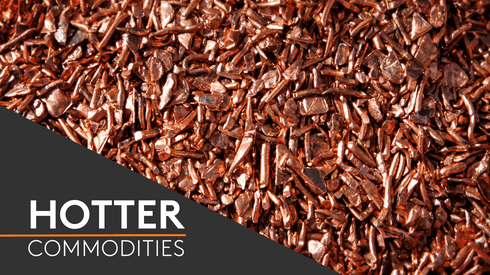KCM, majority owned by Vedanta Resources, is the operator of the African country’s largest copper smelter, Nchanga, with capacity for 311,000 tonnes per year.
“KCM just told us we would not be able to receive [our] June tonnages. We have no idea when deliveries will resume,” the client said on Thursday June 6.
The notice from KCM came after the government filed a liquidation order on May 21 with the intention of forcing India-based Vedanta out of the country. The apparent takeover, the first of its kind, has sent shockwaves through the Zambian copper industry.
Nonetheless, KCM, which is a major producer of blister copper and anodes, has not yet declared force majeure.
“I understand [KCM] has delivered some metal to other traders because there’s still some limited production,” a second trader source said.
But it was difficult to tell whether Nchanga was still operating, because both Vedanta and the liquidators were being tight-lipped about the status of the asset at the heart of controversy. Vedanta has not responded to an inquiry regarding the operation status at the time of publication.
According to data from geospatial platform RS Metrics, satellite images of the Nchanga smelter show that copper stock only covered 742 square meters at the facility in May. In April 2019, there was more than 1,094 square meters of copper in the same facility, close to the town of Chingola.
A source with a buyer of KCM anode told Fastmarkets that the volumes in stock could be estimated at 7-9 tonnes per square meter. Nchanga’s stock level in May would thus have been 5,195-6,680 tonnes.
The drop in Nchanga’s inventory level could mean that income flow was being generated from the sale of inventory to support operations during the transition period to state ownership.
To keep the smelter running, KCM would need working capital of $25-50 million per month, according to mining expert Thilasoni Chikwanda of advisory group Kurema Africa.
“KCM is heavily in debt, and all the income KCM gets is foreign-generated, from copper sales which are held externally by Vedanta,” Chikwanda told Fastmarkets.
A court hearing will be held on June 11, but a liquidation on such a scale was expected to take a considerable amount of time. The principal question was whether KCM would generate or drain revenue during the process.
“This raises the point of whether the government of Zambia will finance the [operating] costs, because banks and potential investors will not provide this money under the current legal challenges,” Chikwanda said, adding that a liquidator would not have the power to borrow or to request that shareholders finance the company.
Certain trading houses still have long-term contracts with KCM for supplies of blister copper, with the amounts yet to be delivered ranging from “negligible” to as much as 10,000 tonnes. KCM’s blister copper is consumed by some major refineries in China.
Blister copper refinement charges (RCs) stayed at $160-170 per tonne cif China on May 31, unchanged from a month earlier.




